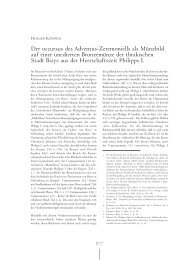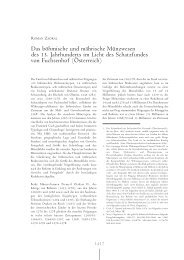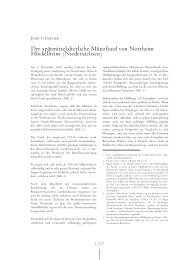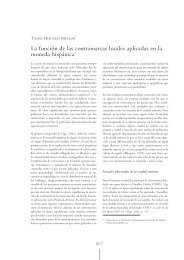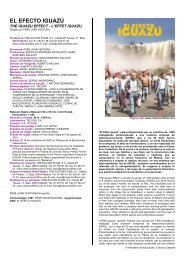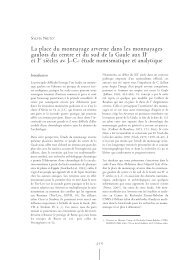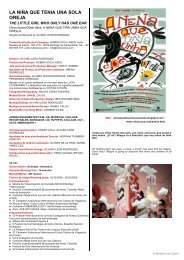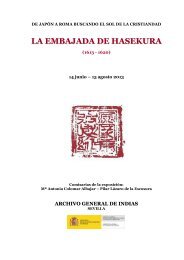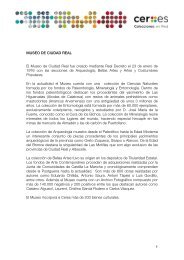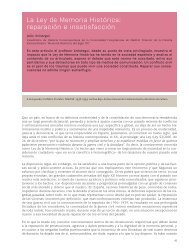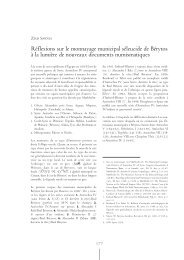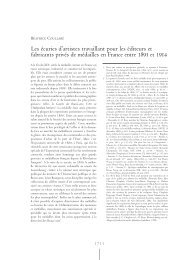Study on the use of subtitling
Study on the use of subtitling
Study on the use of subtitling
Create successful ePaper yourself
Turn your PDF publications into a flip-book with our unique Google optimized e-Paper software.
7 C<strong>on</strong>clusi<strong>on</strong>s<br />
The results that emerge from analysis <strong>of</strong> <strong>the</strong> different <strong>the</strong>mes <strong>of</strong> <strong>the</strong> study dem<strong>on</strong>strate <strong>the</strong><br />
complexity <strong>of</strong> <strong>the</strong> correlati<strong>on</strong> between <strong>subtitling</strong> and knowledge <strong>of</strong> languages.<br />
� There is no negative correlati<strong>on</strong> between being accustomed to dubbing and knowledge <strong>of</strong><br />
foreign languages: <strong>the</strong> inhabitants <strong>of</strong> dubbing countries speak o<strong>the</strong>r languages in<br />
additi<strong>on</strong> to <strong>the</strong>ir mo<strong>the</strong>r t<strong>on</strong>gue. However, <strong>the</strong> inhabitants <strong>of</strong> dubbing countries do not<br />
speak more foreign languages than those <strong>of</strong> <strong>subtitling</strong> countries in any <strong>of</strong> <strong>the</strong> age groups<br />
studied in <strong>the</strong> survey.<br />
� In countries that have a traditi<strong>on</strong> <strong>of</strong> <strong>subtitling</strong>, <strong>the</strong> majority <strong>of</strong> survey resp<strong>on</strong>dents stated<br />
that <strong>the</strong>ir language level (particularly in English) is close to that <strong>of</strong> <strong>the</strong>ir mo<strong>the</strong>r t<strong>on</strong>gue,<br />
i.e. level 4 or 5 <strong>on</strong> a scale <strong>of</strong> 5, whereas in <strong>the</strong> countries with a dubbing traditi<strong>on</strong>, <strong>the</strong><br />
majority <strong>of</strong> resp<strong>on</strong>dents said <strong>the</strong>y did not exceed level 3 <strong>on</strong> a scale <strong>of</strong> 5.<br />
� A correlati<strong>on</strong> seems to emerge with regard to age, number <strong>of</strong> languages spoken and<br />
preference for <strong>subtitling</strong> or dubbing: younger resp<strong>on</strong>dents (aged 12 to 18 and 18 to 25)<br />
who speak more languages showed a more pr<strong>on</strong>ounced preference for <strong>subtitling</strong> ra<strong>the</strong>r<br />
than dubbing.<br />
� The correlati<strong>on</strong> between knowledge <strong>of</strong> languages and a preference for <strong>subtitling</strong> is also<br />
c<strong>on</strong>firmed for students: <strong>on</strong>ce <strong>the</strong>y have begun university, most young Europeans change<br />
<strong>the</strong>ir audiovisual habits and prefer <strong>subtitling</strong> to dubbing, for reas<strong>on</strong>s <strong>of</strong> semiology and<br />
language learning.<br />
� The <strong>on</strong>ly excepti<strong>on</strong> in this category is students from n<strong>on</strong>-language faculties in dubbing<br />
and voice-over countries, who still seem to prefer dubbing to <strong>subtitling</strong>, out <strong>of</strong> habit and to<br />
avoid having to make <strong>the</strong> effort to read subtitles<br />
� Subtitling, especially <strong>the</strong> <strong>use</strong> <strong>of</strong> intralinguistic subtitles, can make it easier for migrants to<br />
learn <strong>the</strong> language <strong>of</strong> <strong>the</strong>ir host country.<br />
� The European populati<strong>on</strong> is c<strong>on</strong>fident <strong>on</strong> <strong>the</strong> whole in <strong>the</strong> educati<strong>on</strong>al potential <strong>of</strong><br />
<strong>subtitling</strong> (nearly 72% <strong>of</strong> resp<strong>on</strong>dents, and in particular <strong>the</strong> populati<strong>on</strong> aged 12 to 25) and<br />
also expresses willingness to view films in <strong>the</strong> original with subtitles if this choice is<br />
<strong>of</strong>fered by televisi<strong>on</strong> channels.<br />
Three main c<strong>on</strong>clusi<strong>on</strong>s may be drawn from <strong>the</strong>se results (to be taken with <strong>the</strong> precauti<strong>on</strong>s<br />
menti<strong>on</strong>ed throughout <strong>the</strong> analysis):<br />
� <strong>subtitling</strong> helps to improve <strong>the</strong> mastery <strong>of</strong> foreign languages (see chapter 4)<br />
� <strong>subtitling</strong> can raise awareness and provide motivati<strong>on</strong> for language learning, in both<br />
formal and informal c<strong>on</strong>texts, and c<strong>on</strong>sequently c<strong>on</strong>tributes to creating an envir<strong>on</strong>ment<br />
that encourages multilingualism (see chapter 5.1)<br />
� knowledge <strong>of</strong> foreign languages and university studies encourage citizens to choose<br />
<strong>subtitling</strong> ra<strong>the</strong>r than dubbing (see chapter 5.2 <strong>of</strong> <strong>the</strong> report).<br />
It is never<strong>the</strong>less important to clarify that in informal learning c<strong>on</strong>texts, <strong>the</strong> number <strong>of</strong> languages<br />
to which viewers' awareness can be raised through <strong>subtitling</strong> depends <strong>on</strong> <strong>the</strong> origin <strong>of</strong> <strong>the</strong> films<br />
in circulati<strong>on</strong>. Today, in <strong>the</strong> near majority <strong>of</strong> European countries, box <strong>of</strong>fice releases are<br />
dominated by North American producti<strong>on</strong>s in English, so viewers in <strong>subtitling</strong> countries are likely<br />
to be most familiar with English.<br />
The fact remains, however, that certain groups <strong>of</strong> <strong>the</strong> European populati<strong>on</strong> (students in language<br />
faculties, cinema enthusiasts, etc.) make a point <strong>of</strong> seeking out <strong>the</strong> original subtitled versi<strong>on</strong> <strong>of</strong><br />
films in <strong>the</strong> different languages in which <strong>the</strong>y wish to improve <strong>the</strong>ir skills.<br />
FINAL REPORT- JUNE 2011 Media C<strong>on</strong>sulting Group -- page 26



